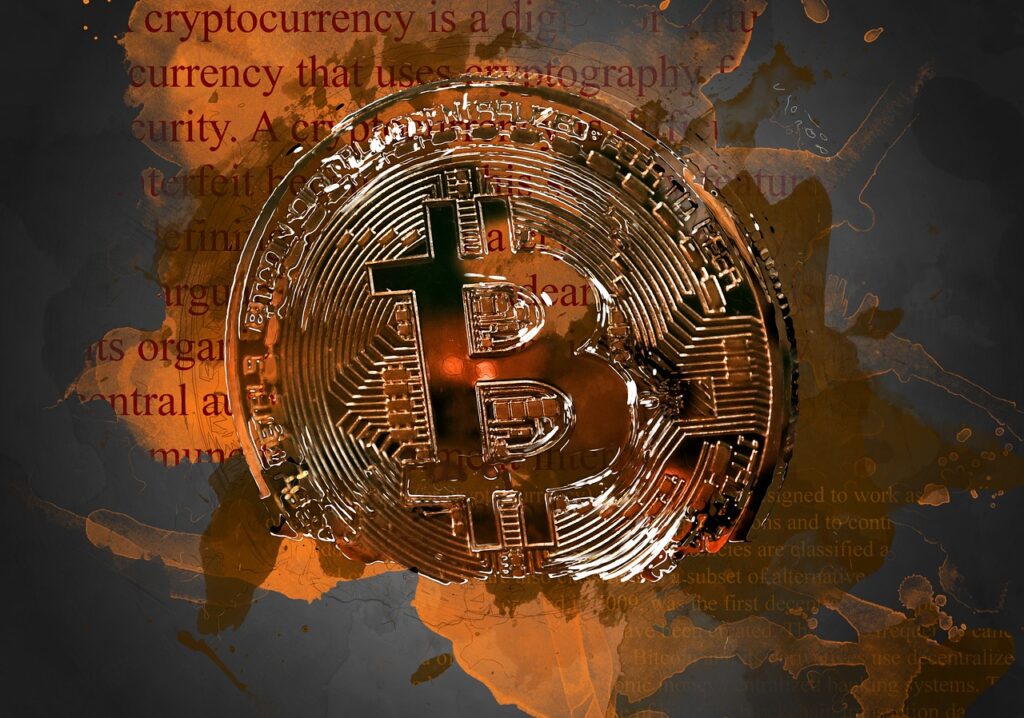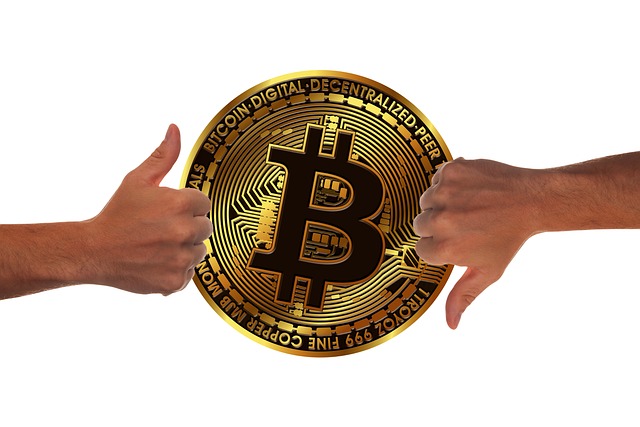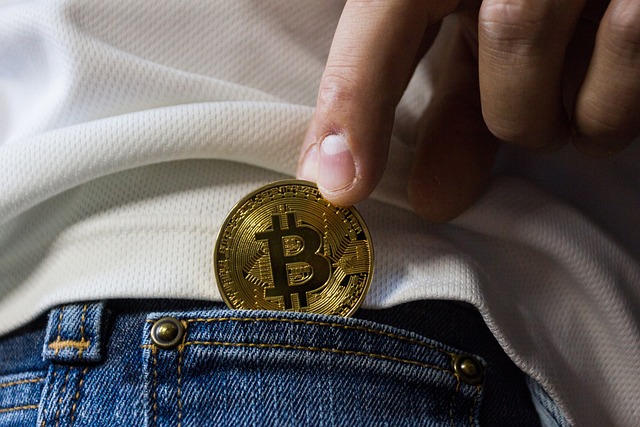Decentralized Finance Company Missions: Shaping the Financial Landscape
Decentralized Finance Company Missions: Shaping the Financial Landscape

The Evolution of Financial Systems
Over the years, financial systems have undergone a significant transformation, adapting to the changing needs and demands of individuals and businesses alike. This evolution can be attributed to various factors, such as technological advancements, economic developments, and shifts in consumer behavior.
One noteworthy aspect of the evolution of financial systems is the increasing integration of digital technology. With the widespread use of the internet and the rise of smartphones, individuals now have greater access to financial services and information at their fingertips. Online banking, mobile payment platforms, and digital currencies have become commonplace, revolutionizing how we manage and exchange our money. This digitalization has not only made financial transactions more convenient and efficient but has also opened new avenues for financial services to reach previously underserved populations.
The Rise of Decentralized Finance
In recent years, there has been a surge in the popularity of decentralized finance, commonly referred to as DeFi. This emerging trend is reshaping the financial landscape, offering new possibilities and challenging traditional financial institutions.
One of the key features of DeFi is its ability to redefine and democratize traditional financial services. Through the use of smart contracts and blockchain technology, individuals can access a wide range of financial products and services without the need for intermediaries such as banks. This has the potential to empower individuals, especially those who are unbanked or underbanked, by providing them with greater control over their financial decisions and access to previously inaccessible opportunities. From lending and borrowing to trading and investing, DeFi platforms are unlocking a new realm of possibilities for individuals around the world.
Redefining Traditional Financial Services
Traditional financial services have long been entrenched in centralized systems that often limit accessibility and exclude certain segments of society. However, the advent of decentralized finance is redefining these services, breaking down barriers, and offering new opportunities for individuals to participate in the financial landscape. With the rise of blockchain technology and cryptocurrencies, decentralized platforms are emerging that allow for peer-to-peer transactions, eliminating the need for intermediaries such as banks or payment processors.
One of the key ways decentralized finance is redefining traditional financial services is by enabling greater financial inclusion. In many parts of the world, individuals who lack access to traditional banking services can now leverage decentralized platforms to store value, access loans, or engage in cross-border transactions. This level of inclusivity has the potential to empower those who were previously excluded from the formal financial sector, opening doors to economic opportunities and empowering individuals to take control of their financial well-being. Additionally, decentralized finance also offers lower transaction costs, faster settlement times, and increased transparency, transforming the way financial services are conducted and experienced by individuals around the globe.
Empowering Individuals in the Financial Landscape
Technology has revolutionized the way we live, work, and interact with the world around us. In recent years, it has also brought about significant changes in the financial landscape, empowering individuals like never before. With the advent of decentralized finance, also known as DeFi, individuals now have access to a range of financial services and tools that were once exclusive to traditional institutions.
Unlike traditional financial systems that rely heavily on intermediaries, DeFi operates on blockchain technology, enabling peer-to-peer transactions without the need for intermediaries. This decentralized nature of DeFi allows individuals to have complete control over their funds, allowing for greater financial autonomy and empowerment. Whether it is accessing loans, earning interest on savings, or participating in investment opportunities, DeFi platforms have leveled the playing field, enabling individuals from all walks of life to engage in the financial system on their own terms.
The rise of DeFi has not only democratized access to financial services but has also fostered financial inclusion and accessibility on a global scale. With traditional banking services often limited to certain geographic regions or demographics, DeFi has transcended these barriers, making financial services accessible to anyone with an internet connection. This has profound implications, particularly for the unbanked and underbanked populations, who have traditionally been excluded from the formal financial system. By leveraging DeFi protocols, individuals now have the opportunity to break free from financial exclusion, gaining access to essential services and tools that can help improve their economic prospects.
• DeFi allows individuals to have complete control over their funds
• Access to loans, earning interest on savings, and investment opportunities are now available to individuals from all walks of life
• Traditional banking services are often limited by geography or demographics, but DeFi transcends these barriers
• Financial inclusion and accessibility are fostered on a global scale through DeFi
• The unbanked and underbanked populations can now access essential financial services and tools
Enhancing Financial Inclusion and Accessibility
Financial inclusion and accessibility have long been fundamental goals for economic development and prosperity. However, traditional financial systems have often left a significant portion of the population excluded and marginalized. This exclusion is particularly prominent in developing economies where access to basic financial services such as banking, credit, and insurance is limited.

Decentralized finance, or DeFi, has the potential to revolutionize the way financial services are delivered, addressing the barriers and limitations that have hampered financial inclusion for far too long. By harnessing the power of blockchain technology and eliminating the need for intermediaries, DeFi platforms enable individuals to access financial services directly, regardless of their location or socioeconomic background. This means that individuals who were previously excluded from traditional financial systems can now participate and benefit from a wide range of financial activities, such as lending, borrowing, and investing, all from the comfort of their own homes using just a smartphone and an internet connection. Ultimately, DeFi has the potential to empower individuals and communities, unlocking new opportunities and fostering economic growth.
Promoting Transparency and Trust
Transparency and trust are vital elements in any financial system. In traditional finance, information is often kept behind closed doors, making it difficult for individuals to fully understand how their money is being managed. However, with the rise of decentralized finance (DeFi), promoting transparency and trust has become a fundamental principle.
One of the key features of DeFi is its use of blockchain technology, which enables the recording of every transaction in a transparent and immutable manner. This means that anyone can view the transaction history, ensuring that there is no room for manipulation or fraud. Furthermore, smart contracts, which are self-executing agreements with the terms of the agreement directly written into code, eliminate the need for intermediaries and significantly reduce the potential for corruption. With these innovative technologies, DeFi is revolutionizing traditional financial services by promoting transparency and trust, giving individuals greater control over their financial activities.
Fostering Innovation and Collaboration
The world of decentralized finance is fostering a culture of innovation and collaboration unlike anything seen before. With traditional financial systems often mired in complexity and bureaucracy, decentralized finance offers a fresh approach that encourages experimentation and creativity. This new landscape has become a breeding ground for ideas, attracting a diverse range of individuals and organizations eager to push the boundaries of what is possible.
In this decentralized ecosystem, collaboration is key. Rather than hoarding knowledge and keeping it behind closed doors, participants actively share their insights and ideas with others. This open exchange of information fuels a dynamic environment where new solutions are constantly being developed and refined. The spirit of collaboration extends beyond individuals and organizations, with partnerships forming between different projects and platforms to create synergies and maximize impact. As a result, the decentralized finance space is rapidly evolving, with innovation happening at an unprecedented pace.
Mitigating Risks and Challenges
As with any new financial system, decentralized finance (DeFi) brings its own set of risks and challenges. One of the main concerns associated with DeFi is the potential for smart contract vulnerabilities. Smart contracts are self-executing contracts with the terms of the agreement directly written into code. While this technology offers efficiency and automation, any flaws in the code can be exploited, leading to financial losses for users. Thus, ensuring the thorough auditing and testing of smart contracts becomes crucial in mitigating such risks.
Another challenge faced by the DeFi ecosystem is the issue of regulatory compliance. Traditional financial systems are heavily regulated to protect investors and maintain the stability of the economy. However, DeFi operates in a decentralized manner, making it difficult to enforce regulatory measures. This lack of oversight can leave users vulnerable to fraudulent activities, scams, and money laundering. To mitigate this, there is a need for the development of regulatory frameworks specific to DeFi that strike a balance between protecting users and fostering innovation.
The Potential Impact on Global Economies
With the rise of decentralized finance, there is a potential for a significant impact on global economies. Decentralized finance, also known as DeFi, aims to revolutionize traditional financial systems by leveraging blockchain technology and smart contracts.
One potential impact is the democratization of financial services on a global scale. Through DeFi, individuals can have access to a wide range of financial products and services without the need for intermediaries such as banks.

Additionally, decentralized finance can promote financial inclusion and accessibility. As blockchain technology enables transparent and secure transactions, it can help overcome barriers such as high costs, complex processes, and lack of trust that have historically hindered access to financial services. This can enable more individuals to participate in economic activities, contribute to economic growth, and reduce income inequality.
Embracing the Future of Decentralized Finance
Decentralized finance, commonly known as DeFi, has emerged as a game-changer in the financial landscape. By leveraging blockchain technology, DeFi eliminates the need for intermediaries and empowers individuals to take control of their financial transactions. With decentralization at its core, the future of finance is being reimagined, offering numerous benefits and opportunities for individuals and businesses alike.
One of the key advantages of embracing decentralized finance is the enhanced accessibility and inclusivity it brings to the table. Traditional financial systems often exclude marginalized communities and individuals with limited access to banking services. However, with DeFi, anyone with an internet connection and a smartphone can participate in a wide range of financial activities, such as lending, borrowing, and even earning passive income through yield farming.

What is decentralized finance?
Decentralized finance, or DeFi, refers to a new and innovative approach to financial systems that allows individuals to access financial services without the need for intermediaries like banks or traditional financial institutions.
How is decentralized finance different from traditional financial systems?
Unlike traditional financial systems, decentralized finance leverages blockchain technology to operate in a transparent and trustless manner. It eliminates the need for middlemen and empowers individuals to have full control over their financial activities.
How does decentralized finance promote financial inclusion?
Decentralized finance opens up access to financial services for individuals who are currently underserved or excluded by the traditional financial system. It allows anyone with internet access to participate in activities like lending, borrowing, and investing.
Can decentralized finance enhance transparency and trust?
Absolutely! Blockchain technology, which underpins decentralized finance, provides a transparent and immutable record of all transactions. This transparency promotes trust among users as they can verify and track all financial activities on the blockchain.
What opportunities does decentralized finance offer for innovation and collaboration?
Decentralized finance encourages innovation by enabling developers to build new and creative financial applications on open blockchain platforms. It also fosters collaboration as developers can leverage existing protocols and work together to create better financial solutions.
Are there any risks and challenges associated with decentralized finance?
Yes, just like any new technology, decentralized finance faces certain risks and challenges. These include smart contract vulnerabilities, regulatory uncertainties, and potential security breaches. However, the industry is constantly evolving to address these issues and improve security measures.
How can decentralized finance impact global economies?
Decentralized finance has the potential to reshape global economies by democratizing access to financial services. It can decrease reliance on traditional banking systems, reduce transaction costs, and enable cross-border financial activities in a more efficient and inclusive manner.
How can I embrace the future of decentralized finance?
To embrace decentralized finance, you can start by educating yourself about blockchain technology, understanding the various decentralized finance platforms available, and exploring different financial applications built on decentralized networks. This will allow you to actively participate and benefit from this emerging financial ecosystem.
Todays Featured Product:
Buy, exchange and grow your crypto securely with a Ledger hardware wallet, combined with the Ledger Live app. It’s never been easier to keep your crypto safe and accessible. Buy direct from Ledger.com and get todays Special Offers Here.




